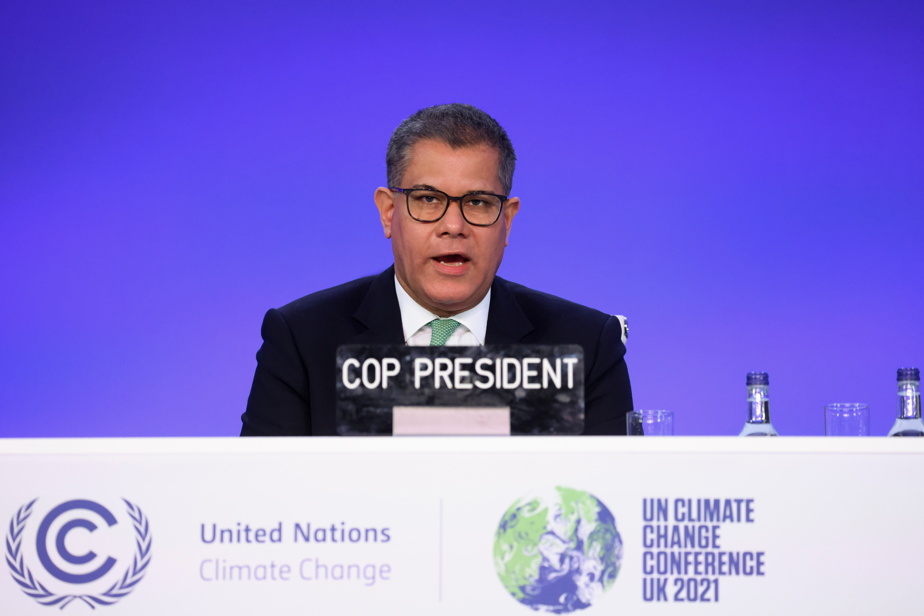An incomplete deal, but a historic one was announced on Saturday afternoon at COP26 in Glasgow, Scotland. For the first time in the history of these international conferences, an official text recognizes the role of fossil fuels in global warming.
Eric-Pierre Champagne Journalism
Alok Sharma announced the UK’s COP26 chief after two weeks of intense negotiations that culminated in the past 48 hours. The text will henceforth be known as the Glasgow Climate Charter (Glasgow Climate Charter in English).
While negotiators from nearly 200 countries have finally reached an agreement, its success will nonetheless be measured by tangible reductions in greenhouse gas (GHG) emissions over the next few years. CO2 concentration2 In the atmosphere it was 415.72 parts per million, according to the latest official reading on Friday, well above the limit needed to limit global warming to 1.5 degrees.
At the last minute, India called for an amendment to narrow the text on coal. Instead, it will be a question of “reducing” the use of coal rather than “phasing out” its use. Remember that nearly half of this country’s energy production comes from coal.
Although the proposal appeared to displease many states, it was adopted without “official” objection from other states.
In the plenary session on Saturday morning, the majority of countries supported the text proposed by the presidency, despite the many disagreements that remain. Alok Sharma also insisted on the fact that although imperfect, the text allows to maintain the goal of limiting warming to 1.5 degrees compared to the pre-industrial era.
The agreement is a step forward compared to the Paris Agreement when it specifically states that “the impacts of climate change will be less significant as the temperature rises by 1.5 degrees compared to 2 degrees and that efforts must continue to limit warming to 1.5 degrees.”
The agreement also recognizes the importance of reducing carbon dioxide emissions2 45% compared to the 2010 level, by 2030 in order to contain warming to the famous 1.5 degrees.
According to the Climate Action Tracker’s latest analysis, commitments made so far will limit warming to 2.4 degrees by 2100, while the International Energy Agency (IEA) instead estimates warming at 1.8 degrees.
C’est la représentante du Guatemala qui a en quelque sorte le mieux résumé l’enjeu pendant la plénière précédant l’annonce en rappelant qu’« on peut voir le verre à moitié vide ou à moitifés à pleére plein, Fill “.
mixed reactions
Reactions were quick immediately after the agreement was announced. Several environmental groups have strongly criticized the agreement. But according to Carbon Tracker Chairman Mark Campanali, the Glasgow charter could nonetheless be a turning point.
“There are so many good things, bad things, so many pieces missing, and without a doubt, there is still a lot to do to build on a deal that could turn into a turning point. This is especially true if governments can come back next year, and next year , with more ambitious emissions targets,” the head of the London-based NGO wrote on Twitter.
“It has been eased, it is weak and the 1.5°C target is still alive, but a signal has been sent: the age of coal is over. This is important,” Greenpeace International said in a statement.
And while the agreement recognizes the need to cut emissions significantly in this decade, those commitments have been deferred until next year. Young people who grew up with the climate crisis will not bear these kinds of consequences. Why are they doing this while they are fighting for their future? She added.





